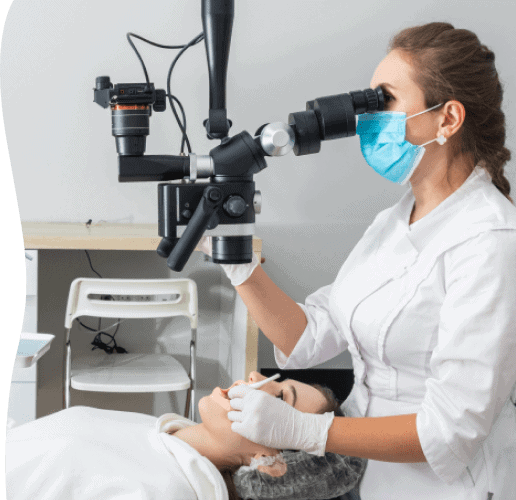A bright, confident smile can make a difference in one’s life. Many individuals seek a solution to restore their smile after losing a tooth. In recent years, single-tooth dental implants have become an increasingly popular option for people looking to replace a missing tooth, offering a long-term option that mimics the appearance and function of a natural tooth. This article will explore the benefits and risks of single-tooth dental implants, delving into the dental implant procedure, the dental implant success rate, and factors that may affect the outcome.

Summary of the Article
- Dental implants are artificial tooth roots that offer a long-term solution to missing teeth. This guide provides a comprehensive look at the osseointegration process, where the titanium implant fuses with the jawbone, and the impact of smoking on this process.
- Smoking effects on dental implants can complicate the success of dental implant procedures. This piece details how harmful chemicals in cigarettes can increase the risk of infection and implant failure.
- The dental implant success rate for smokers is lower than for non-smokers. Various factors like oral hygiene, post-operative care, and overall health can influence the outcome.
- Steps can be taken to manage and reduce the risks of dental implants for smokers, such as quitting smoking, maintaining good oral hygiene, and following post-operative care instructions.
- Other tooth replacement options for smokers worried about potential complications with dental implants are explored, including dental bridges and removable dentures.
- Dental professionals play a crucial role in managing risks for smokers. Open communication, regular check-ups, and diligent maintenance can help improve the chances of successful implant treatment.
Understanding the Basics of a Single Tooth Dental Implant
To fully comprehend the benefits and risks of single-tooth dental implants, it’s essential to first understand the basics of the procedure, including the components involved and how they function together to mimic a natural tooth. By delving into the foundational knowledge of dental implants, individuals can make informed decisions regarding the suitability of this treatment for their specific needs.
What Is a Single Tooth Dental Implant?
A single-tooth dental implant is a long-term option designed to replace a missing tooth and restore the appearance and function of a natural smile. The procedure involves the placement of a titanium post into the jawbone, which serves as an artificial tooth root, providing a stable foundation for the implant.
Over time, the titanium post fuses with the bone through a process known as osseointegration, allowing for a secure and long-lasting connection. Once the healing process is complete, a dental crown is attached to the titanium post, resulting in a fully functional and aesthetically pleasing artificial tooth.
Components of a Dental Implant
A dental implant comprises three primary components that provide stability and a natural appearance. The first component is the titanium post, a medical-grade screw surgically inserted into the jawbone, acting as the artificial root for the implant.
The second component is the abutment, a small connector that attaches to the titanium post and serves as the base for the dental crown.
Finally, the dental crown is a custom-made, tooth-like restoration affixed to the abutment, completing the implant process and providing the appearance of a natural tooth. Depending on the patient’s preferences and requirements, the materials used for the dental crown can vary, with options such as porcelain or ceramic.
The Benefits of Choosing a Single-Tooth Dental Implant
Choosing a single-tooth dental implant offers numerous benefits, from long-term tooth replacement to preserving jawbone structure and improved appearance and functionality. By selecting this treatment, patients can enjoy a tooth replacement that closely mimics the look and feel of a natural tooth, providing them with greater confidence in their smiles and overall oral health.
Long-term Option for Tooth Replacement
One of the most significant benefits of single-tooth dental implants is their durability and longevity. Unlike other therapeutic options such as bridges or dentures, dental implants are designed to last for decades, often with proper care and maintenance. The titanium post’s integration with the jawbone provides a strong and stable foundation that can withstand the pressures of biting and chewing, making dental implants a long-term option for tooth replacement.
Preservation of Jawbone Structure
Another advantage of single-tooth dental implants is their ability to preserve the jawbone structure. When a tooth is lost, the underlying bone can deteriorate due to a lack of stimulation from the tooth root. A dental implant replaces the root, promoting bone growth and preventing further bone loss. This preservation of the jawbone structure helps maintain facial shape and overall oral health.
Improved Appearance and Functionality
Finally, single-tooth dental implants improve appearance and functionality compared to other tooth replacement options. The dental crown, custom-made to match the patient’s natural teeth, offers a seamless and natural look. Dental implants also function like natural teeth, allowing patients to eat, speak, and smile with ease and confidence. This enhanced quality of life contributes to the overall appeal of single-tooth dental implants as a treatment option.
Dental Implant Procedure: What to Expect
Understanding the dental implant procedure can alleviate concerns and set realistic expectations for those considering a single-tooth dental implant. The process typically involves several stages, including initial consultation and planning, implant placement surgery, osseointegration and healing, crown placement, and final adjustments. By familiarising themselves with each step, patients can understand what to expect throughout the journey to a restored smile.
Initial Consultation and Planning
The initial consultation and planning are the first stage in the dental implant process. During this appointment, the dentist will evaluate the patient’s oral health, review their medical history, and discuss the desired outcome. X-rays or 3D scans may be taken to assess bone density and determine the optimal implant position. Based on this information, a comprehensive treatment plan will be developed, outlining the steps, timeline, and estimated costs involved in the procedure.
Implant Placement Surgery
Following the initial consultation, the patient will undergo implant treatment. The dentist will administer local anaesthesia to keep the patient comfortable during the procedure. A small incision is made in the gum tissue, and the titanium implant post is inserted into the jawbone. The incision is then closed with sutures, and the implant is left to heal.
Osseointegration and Healing Process
During the healing process, which typically takes several months, osseointegration occurs. This is the process whereby the titanium implant post fuses with the surrounding bone, creating a strong and stable foundation for the artificial tooth. Patients may receive a temporary crown, denture, or bridge during this time to maintain their appearance and ability to eat and speak.
Crown Placement and Final Adjustments
Once the implant has fully integrated with the jawbone, the final stage involves placing the dental crown. The dentist will take impressions of the patient’s mouth to create a custom-made crown that matches the surrounding teeth’s shape, size, and colour.
The crown is then attached to the implant using an abutment. Any necessary adjustments are made for a perfect fit and bite alignment. With the crown in place, the single-tooth dental implant procedure is complete, providing the patient with a fully restored and functional tooth.
Get Outstanding Dental Care with Us Today
At The Smile Space, we believe that comprehensive dental care should be accessible to everyone. Our experienced team is dedicated to providing the highest standard of care, using the latest technology and techniques. If you're looking for a dentist in Sutherland, book an appointment at The Smile Space today!

Alternatives to Single Tooth Dental Implants
While single-tooth dental implants provide an effective treatment option for tooth replacement, it’s important to consider alternative options to determine a suitable course of action for each patient’s unique situation. Two common alternatives to dental implants are dental bridges and removable partial dentures. Each option has advantages and disadvantages; a thorough discussion with a dentist can help patients make an informed decision.
Dental bridges
A dental bridge is a non-removable prosthetic device that spans the gap a missing tooth leaves. It consists of a false tooth, known as a pontic, anchored to the adjacent teeth with dental crowns. Dental bridges provide a fixed, long-term option for tooth replacement. They can be an appropriate choice for patients with insufficient bone density for an implant or who prefer not to undergo surgery. However, dental bridges require the removal of some healthy tooth structure from the neighbouring teeth, and they may not last as long as dental implants.
Removable partial dentures
Removable partial dentures are another option for replacing a single missing tooth. These prosthetic devices consist of a false tooth attached to a metal or acrylic base held in place by clasps connecting to the surrounding teeth. Removable partial dentures offer a less invasive and more affordable alternative to dental implants. Still, they may not provide the same comfort, stability, and functionality. Additionally, partial dentures require daily removal and cleaning. They may need to be adjusted or replaced periodically as the patient’s mouth and jawbone change over time.
Assessing the Risks and Potential Complications
While these dental procedures offer numerous benefits of single-tooth dental implants, it’s crucial to understand the potential risks and complications associated with the procedure. Awareness of these factors can help patients make informed decisions, take preventive measures, and adequately prepare for possible outcomes.
Infection and Inflammation
As with any surgical procedure, there is a risk of infection and inflammation following dental implant placement. Maintaining good oral hygiene, following postoperative care instructions, and attending follow-up appointments can significantly reduce the risk of infection. In some cases, dentists may prescribe antibiotics as a preventive measure. Patients should promptly report any signs of infection or inflammation, such as persistent pain, swelling, or pus discharge, to their dental professional for immediate evaluation and treatment.
Damage to Surrounding Structures
During implant placement, unintentional damage to surrounding structures, such as adjacent teeth, blood vessels, or nerves, is possible. Skilled dental professionals take great care to minimise these risks, using advanced imaging techniques and precise surgical planning. However, damage may result in temporary or permanent complications, such as numbness, tingling, or pain. Promptly addressing concerns with the dental team is essential for effective management and resolution.
Implant Failure
Although dental implant success rate has been reported to be between 90% and 95%, implant failure is still possible. Factors contributing to implant failure include poor bone quality or quantity, inadequate oral hygiene, smoking, and certain medical conditions. Failure can occur shortly after implant placement or years later due to peri-implantitis, a gum disease affecting the tissue surrounding the implant.
Determining If You Are a Suitable Candidate
Determining if you are a suitable candidate for a single-tooth dental implant is a crucial step in the decision-making process. Several factors contribute to the overall success of the procedure, and evaluating these factors will help patients and dental professionals determine the appropriate course of action.
Adequate Bone Support
An essential prerequisite for a successful dental implant is having adequate bone density and volume in the jaw to support the implant. Dental professionals will assess bone structure during the initial consultation using imaging techniques such as X-rays or CT scans. In cases where bone support is insufficient, a bone grafting procedure may be recommended to enhance the bone volume and improve the chances of a successful implant.
Oral Health
Maintaining good oral health is vital for the long-term success of a dental implant. Patients with active gum disease, untreated tooth decay, or other oral health issues may need to address these concerns before proceeding with the implant procedure.
Commitment to a Long-term Solution
Dental implants are a long-term option for tooth replacement. Patients should be prepared to commit to maintaining their implants for many years. This commitment includes practising good oral hygiene, attending regular dental check-ups, and following the dental professional’s implant care and maintenance recommendations.
Cost and Financing Options for Single Tooth Dental Implants
Cost and financing options for single-tooth dental implants can be significant considerations for many patients. Understanding the factors that influence the cost of the procedure and exploring various financing options can help make dental implants more accessible to a wider range of patients.
Factors Affecting the Cost of Dental Implants
The cost of dental implants can vary depending on several factors, such as the complexity of the case, the geographical location of the clinic, the experience of the dental professional, and the materials used for the implant and crown. According to the Dental Fee Survey of 2023, a single dental implant can range from \$4,000 to \$6,000.
Dental Health Funds and Payment Plans
Dental health fund cover for dental implants may vary depending on the specific health fund and policy. Some policies may cover a portion of the implant procedure, while others may not provide cover at all. It is important to consult with the health fund provider to determine the level of cover they provide for dental implants. Additionally, many dental clinics offer payment plans or financing options to help make the procedure more affordable. These plans can help spread the cost of the treatment over a longer period, making it more manageable for patients.
Caring for Your Dental Implant
Caring for your dental implant is essential for its longevity and maintaining oral health. By practising good oral hygiene habits and attending regular dental check-ups, you can enjoy the benefits of single-tooth dental implants for years to come.
Maintaining Good Oral Hygiene
Maintaining good oral hygiene habits is crucial to keeping your dental implant in optimal condition. This includes brushing your teeth at least twice daily with a soft-bristled toothbrush and using an interdental cleaner, such as dental floss or a water flosser, to clean between the teeth and around the implant.
Regular Dental Check-ups
In addition to maintaining good oral hygiene at home, it is important to schedule regular dental check-ups and professional cleanings. During these appointments, the dental professional can monitor the health of the dental implant, the surrounding gum tissue, and the remaining natural teeth. They can also identify and address any potential issues before they become more serious, helping with the long-term dental implant success rate.
Final Thoughts
A single-tooth dental implant can offer a long-term option for individuals seeking to replace a missing tooth while preserving jawbone structure and improving appearance and functionality. Understanding the basics, benefits, risks, and procedures involved, determining one’s suitability, and exploring financing options are all essential steps in making an informed decision about this life-changing treatment.
For those considering dental treatment, The Smile Space is a great choice for professional dental care. The skilled team at The Smile Space is dedicated to providing comprehensive consultations and personalised treatment plans to meet each patient’s unique needs. To learn more or to schedule a consultation at The Smile Space, interested individuals are encouraged to contact the clinic today. The team at The Smile Space is ready to help patients achieve a healthy, confident smile.







